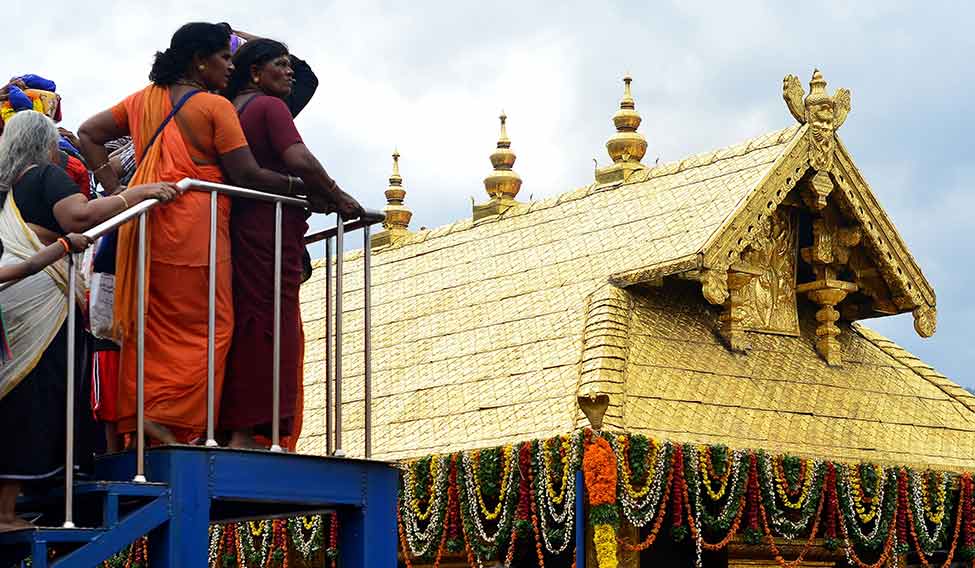While pondering the Sabarimala verdict, I was struck by a conundrum. Who were the women who genuinely wanted the ban to be lifted? Were they even women? The president of the Indian Young Lawyers Association that filed the PIL, advocating entry of women of menstruating age in the Sabarimala temple, is neither a woman nor a Hindu. If you were a religious Hindu woman, you probably bought into the traditional belief that Lord Ayyappan does not welcome menstruating women to his abode. The fact that so many people protesting the verdict are women, including the lone Supreme Court judge who went against the majority decision, affirms this fact.
Does this mean that the fight for entry to the temple was purely a women's rights issue? Simply another hurdle, albeit a weighty one, removed as Indian women fight for equality? Surely not. Surely there are women for whom the issue is close to their hearts. There are some who are religious and yet believe that their god is not one who discriminates against them because of a natural phenomena that He himself created.
Are these women traditionalists with a modern outlook? Or are they modern with traditional beliefs? Or are they neither here nor there? I admire them because they have overcome years of indoctrination, not just from the males in their families but also from their mothers and grandmothers, that they are impure because they bleed. I dare to suggest that these are the women we need to stand behind. They reason, and they see the inherent contradictions in a society steeped in religious beliefs. The arithmetic just does not add up. Menstruation equals impurity. Women equal menstruation. Therefore, women must equal impurity, right?
But that can't be in a society that reveres its women as devis, and considers them paragons of purity. Does that mean we are pure only in the parts of our bodies which do not bleed? Perhaps, in a bizarre way, that makes sense. Menstruation is, in a roundabout manner that I suspect even men don't fully understand, associated with sexuality. That's why lawyer Indira Jaising argued that banning women from the temple on the grounds of the deity being celibate is equivalent to stereotyping them as 'seductresses'.
So, society aims to strip women of their sexuality on the ground that god does not approve of it. Thus, a spiritual leader suggests that a Delhi gang-rape victim should have called her rapists 'brothers' and begged them to stop. Thus, the prime minister's wife is hailed for forgiving her husband who deserted her, and saying that he is 'Ram' for her; at the same time, a prominent actress is criticised for sitting in front of him in a dress with her legs exposed. Thus, a movie named a 'sexy' goddess is banned in theatres.
The women who are passionately fighting for entry to the temple are not just fighting to end an anachronistic custom. They are fighting to redefine the very perception of their God which, currently, might be a very man-made one. It is a brave fight they have taken on, to appropriate a deity entrenched in the firm grasp of patriarchy. This victory must be sweet indeed!



